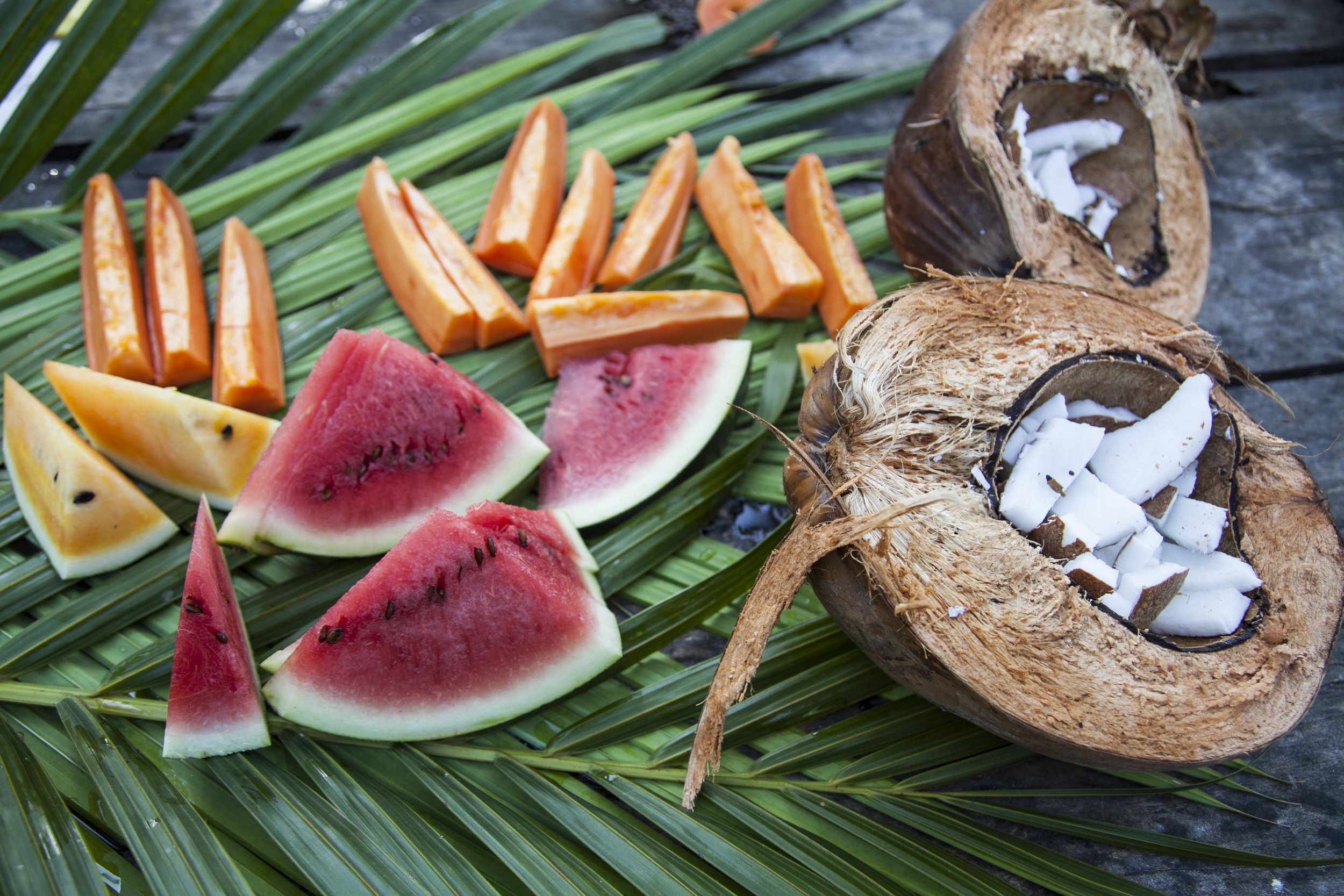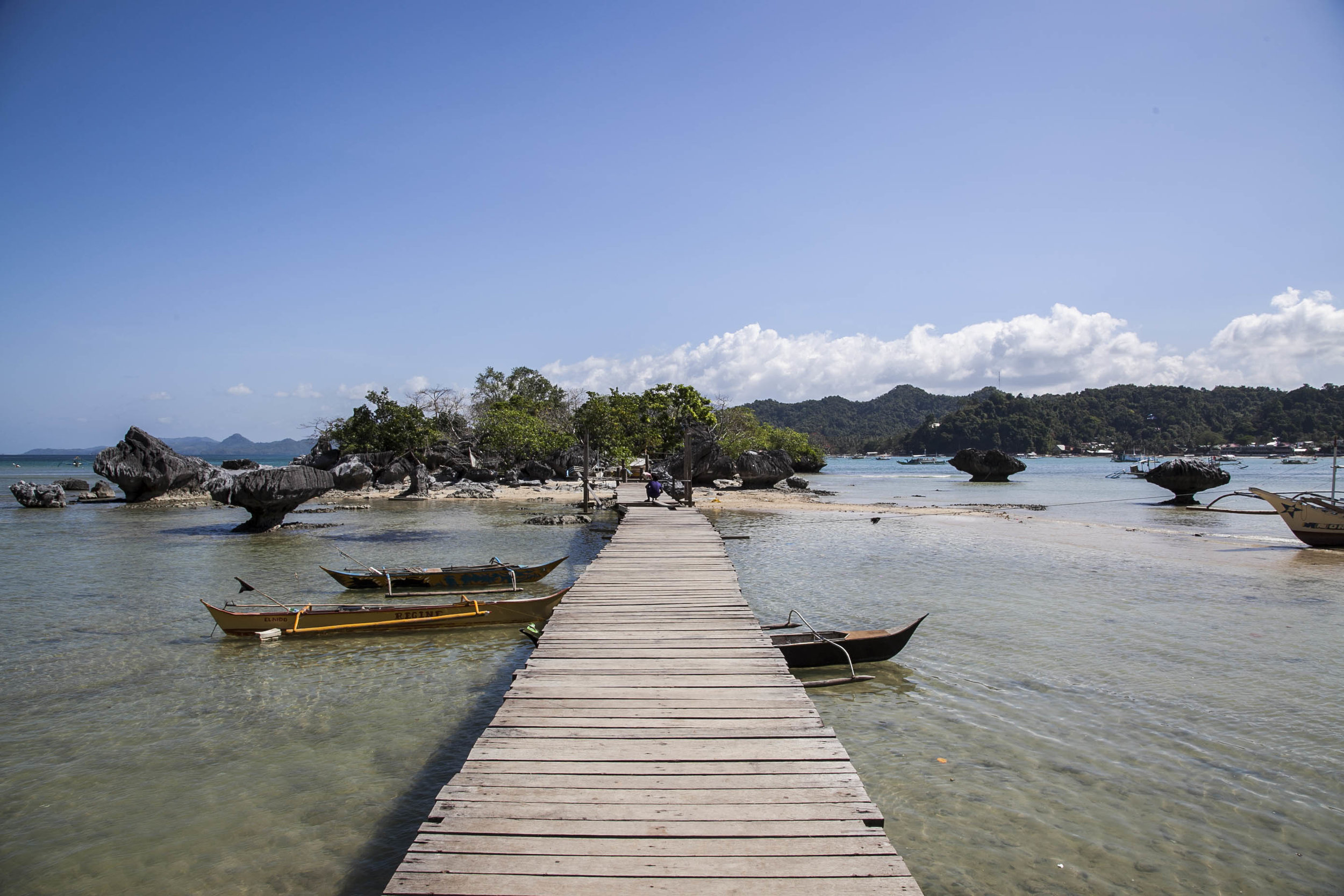Australian Jade Spadina took a break from her law books to study the beautiful landscapes and cultural ecology of the Philippines. Continue reading below to discover her recommendations and realizations.
Introduce yourself!
Hi there. My name is Jade. I’m from Sydney, Australia but have been living in Muscat, Oman for the past 9 months with my husband. I’m a corporate professional, but enjoy creative pursuits in my spare time. The thing that interests me most about travel is gaining an insight into the lives of people from all around the world. It makes me feel very appreciative of the things I take for granted coming from a first world country.
What sparked your trip through Northern Palawan? Which cities/regions did you visit?
I was in the middle of a post-grad law degree and needed a short break between studies and work. I had a few weeks to spare between the end of summer school and the beginning of the first semester, and wanted to go somewhere to relax, as studying law full-time and trying to work takes its toll, but somewhere which was still culturally interesting. So I booked a five day boat trip through northern Palawan, between El Nino and Coron, with a fantastic company called Tao Philippines.
What was the experience having visited so soon after typhoon Yolanda?
On some of the small islands near Coron, many people had lost their homes and were living in makeshift accommodation, which was usually just a few planks of wood on the ground beneath a tarpaulin. Despite their predicament, it was surprising to see that everyone seemed to be in good spirits, slowly rebuilding their homes and repairing their fishing boats. Fishing is an important industry on the islands, as many locals take both fresh and dried fish to the markets in Coron to sell. The team at Tao Philippines were assisting the local people by providing them with materials to repair their boats and resume fishing.
Did you have any transformative experiences? How did you interpret the local culture? Did you have any favorable/unfavorable culinary experiences?
Spending 5 days without electricity and modern technology (whilst on the boat and camping on the islands) made me realise that we can live quite easily without these luxuries. Seeing the local people living so simply and with so little, but always having a smile on their face, I began to question how we live in the first world, having everything and still never being happy, always wanting more than what we have. It was quite a humbling experience. The Filipino people were incredibly friendly and hospitable. Staying on the islands meant that we had an endless supply of fresh seafood and tropical fruit. Some interesting and delicious meals included banana blossom pancakes and deep fried sweet bananas dipped in condensed milk - I have such a sweet tooth.
What would you was the most gratifying about your experience? The most challenging?
Meeting some of the local people and playing with the children was perhaps the most gratifying experience. The children were particularly fascinated with my camera—constantly wanting to have their photo taken and then so eager to see the image on the screen. Initially, the most challenging experience was disconnecting from the outside world—for five days I had no access to the Internet. The first days were rather challenging, but as the week progressed, I didn’t miss it.
How was this travel experience different from past trips you’ve taken? What surprised you most?
Definitely the people. They are perhaps the friendliest I have met on my travels. And the relaxation. When I travel I tend to try to see and do everything in a limited space of time. Spending five days on a boat meant I was able to relax.
What recommendations do you have for future travelers interested in having a similar experience?
Definitely contact Tao Philippines and organise a trip with them. If you’re limited with time, spend a few days in El Nido and take a few day excursions to the nearby beaches, islands, lagoons and reefs. There are a number of operators and you can book on arrival. Great accommodation option in El Nino include El Gordo’s Guesthouse and The Birdhouse. In regards to food, try the local seafood and tropical fruits—it’s fresh and delicious. And if you can find banana blossom pancakes, try those too.
What would surprise most people about the region?
The Philippines is a developing country. We see many images of fancy resorts and expensive restaurants on the Philippine islands. This isn’t the reality. Although the landscapes are stunningly beautiful, and there are a number of fancy hotels and restaurants, the local people are still very poor and live simple lives.
What is your favorite/funniest memory from a trip? Is there a particular travel moment you would relive given the opportunity?
We had a fantastic crew on the boat. They were a constant source of laughter and amusement. On our final day, as we headed towards Coron, they turned on some music, had a couple of drinks and danced on the top level of the boat. They were hilarious. I don’t think I have laughed so much in my life. So I wouldn’t mind reliving that afternoon.
Does photography influence the way you travel and see the world around you?
Sometimes I feel like I’m always behind the camera, constantly taking photos and not experiencing the moment. But on the other hand, photography provides a tool with which to interact with local people. Whenever I take a photo of an individual I always ask for permission and this occasionally opens up a conversation, which I would not have had had I not asked to take a photo. In the Philippines, the local children wanted to have the photos taken, so having a camera with me allowed to me interact with them. I also mailed photos I took of the children to our tour leader to distribute to the parents, most of which do not have cameras and appreciated receiving the photos. Photography provided an opportunity to give back to the community in a sense.
What’s next for you? Any final thoughts or advice?
My husband and I are expecting a child at the end of the year, so we will be taking a break from our travels for a while.
When travelling through developing countries, try to make plans which support local communities and don’t negatively affect them and their surroundings. There are many tour operators which give back to local communities and lessen the environmental impact of travellers. Take some time to research and make your travel plans wisely.
To keep up with Jade's travels and photography, visit her blog beentheresnappedthis or on follow her on Instagram @jadespadina.
Images Courtesy of Jade Spanida




















